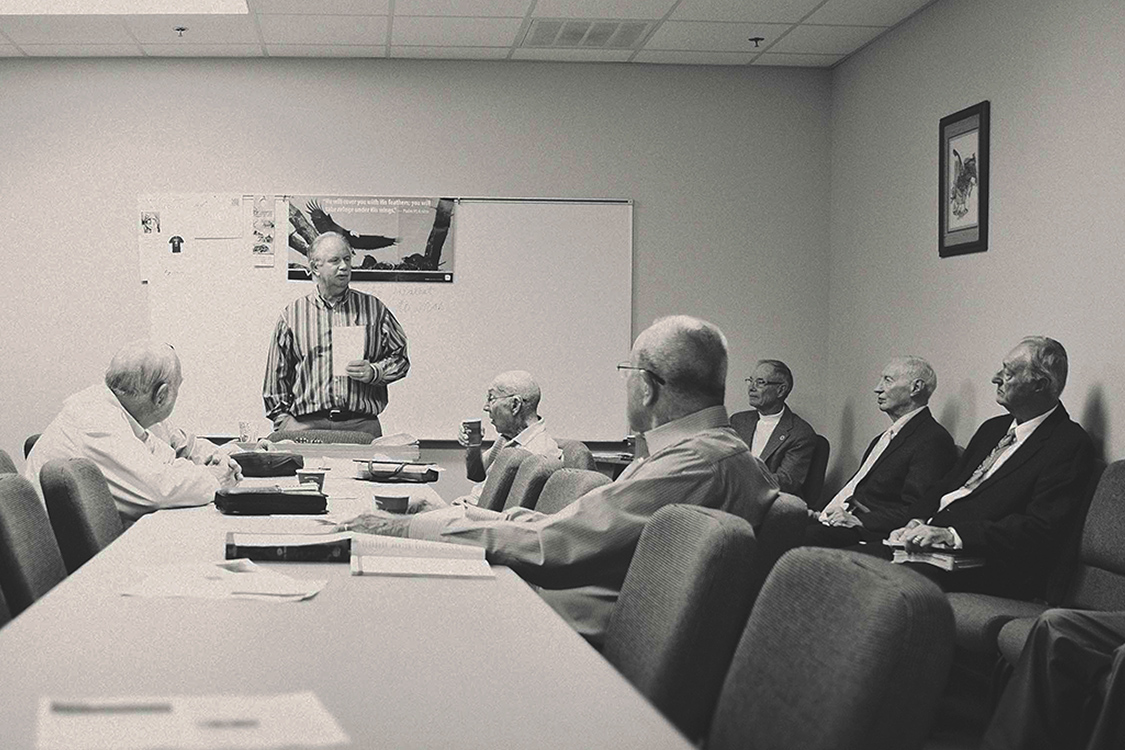
No pastoral care model can do without deacons. Their primary calling is not administration and maintenance of a church’s facilities. They, too, are to focus on people. First Timothy 3 and Acts 6 are important passages that confirm this commitment to people.
In 1 Timothy 3:8, the deacon is to be wise with finances, “not pursuing dishonest gain.” He is to be faithful with money. This is not said of elders. Many take this to mean that deacons are to oversee the budget of a church. It is probable, though, in light of Acts 6, that this has a different emphasis. It is likely that it has more to do with helping those in need than with handling the budget. In 1 Timothy 3:12, deacons are to administer, managing their households. Elders and deacons must administer, and the deacons play a critical part. They both administer in such a way that their respective ministries to people are most effective.
The passage that seems to focus most on the function of deacons is found in Acts 6:1–7.
-
In those days when the number of disciples was increasing, the Hellenistic Jews among them complained against the Hebraic Jews because their widows were being overlooked in the daily distribution of food. So the Twelve gathered all the disciples together and said, “It would not be right for us to neglect the ministry of the word of God in order to wait on tables. Brothers and sisters, choose seven men from among you who are known to be full of the Spirit and wisdom. We will turn this responsibility over to them and will give our attention to prayer and the ministry of the word.” This proposal pleased the whole group. They chose Stephen, a man full of faith and of the Holy Spirit; also Philip, Procorus, Nicanor, Timon, Parmenas, and Nicolas from Antioch, a convert to Judaism. They presented these men to the apostles, who prayed and laid their hands on them. So the word of God spread. The number of disciples in Jerusalem increased rapidly, and a large number of priests became obedient to the faith.
The critical aspects of this passage are found in verses 1, 2, 3, and 7.
- Acts 6:1—there is a practical need that food be distributed.
- Acts 6:2—“wait on tables.” This word is diakonos, which means to serve or wait on tables. Diaconal ministry means meeting people’s felt needs practically through practical deeds of mercy.
- Acts 6:3—“known to be full of the Spirit and wisdom.” Notice that deacons are not quasi-elders who just don’t measure up spiritually. No, they are men who are mature and wise in the faith.
- Acts 6:7—the diaconate is the office that speaks through deeds and facilitates the spread of the Word of God.
Deacons adorn the gospel through acts of kindness to the suffering and needy. Deacons are not primarily administrative assistants to the elders! The focus, as with elders, is ministry to people.
The point of the previous discussion is to show that both elders and deacons focus primarily on people. The elders are gifted and equipped to minister to people primarily in word-oriented ministry. The deacons are gifted and equipped to minister to people primarily in deed-oriented ministry.
Copyright © 2016 Timothy S. Lane.
